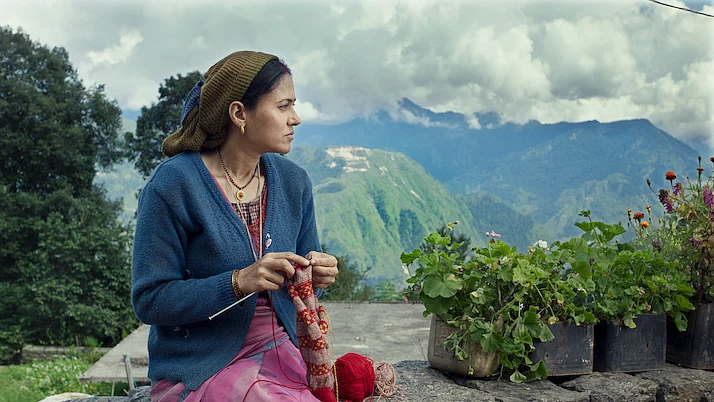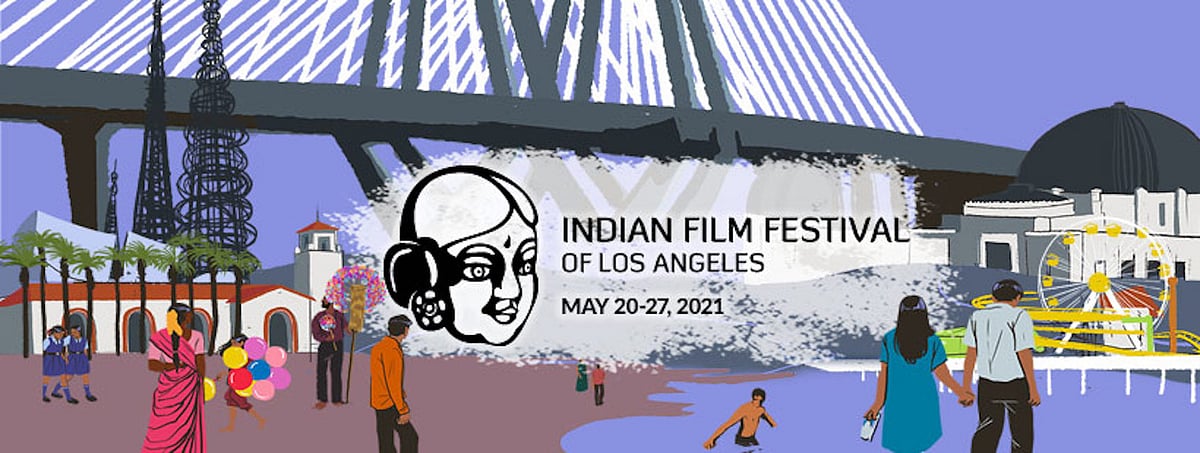Indian Film Festival of Los Angeles opens with ‘Fire in the Mountains’
This year the festival will be held virtually on a platform called Eventive and will be open to all of California for the first time. It will also accommodate a few films announced for last year’s do

After adapting to the online mode last year, the Indian Film Festival of Los Angeles is back with its 19th edition. Scheduled to take place from May 20 to 27. For the first time there’ll be passes available to all India-based audiences. Priced at Rs 150 ($2) it will offer them access to 24 films—18 shorts and six features—and two panels.
Filmmaker Asif Kapadia, who will be presenting the opening night film, Ajitpal Singh’s Fire in the Mountains, will also be moderating the Q&A session with the director. The closing night film, Sthalpuran: Chronicle of Space, will be presented by filmmaker Anurag Kashyap who will then moderate the session with its director Akshay Indikar.
Following last year’s 125 films spectacle, this year the festival will be held virtually on a platform called Eventive and will be open to all of California for the first time. This edition will also accommodate a few films that had been announced for last year’s edition before the pandemic changed the course of things.
Christina Marouda, Executive Director of the festival, says that the virtual mode has given them the option to present as many films as they want, which was earlier not possible because there were specific schedules and venues to adhere to. However, they’ve curated a strong program to give the audience a wholesome experience.

She adds that this is sometimes a challenge, since IFFLA has a diverse audience. “Our programming department has people from different backgrounds, having different native languages, bringing different abilities and experiences and that’s the reason we end up with films that stretch the boundaries of our audiences, but don’t alienate them,” she says.
Boasting of diversity and inclusivity, the 40 films that IFFLA will be hosting this year, span across 17 languages and showcase 16 women directors.
Despite the research and effort that's going into this festival, Marouda feels that the vibe of the physical events is something that cannot be recreated easily. Yet, they’re attempting to do so through virtual mixers where filmmakers will have the opportunity to interact among themselves. There’ll be similar social events for patrons to meet filmmakers from LA, India and other movie industries. The virtual award show, which will be hosting two panels, will include trans and non-binary stories from South Asia. The films presented will also be accompanied by Q&A sessions to give the feel of a not-so-virtual event.
However, the time difference plays a role in the virtual world too, which is why a few panels will be pre-recorded, while others, like the filmmakers’ orientation, will be live.
This year’s highlight will be a special programme curated by veteran programmer and casting director Uma da Cunha, who also happens to be IFFLA’s programming advisor since 2002. Titled “Childhood on Edge”, it will feature films about “the struggles children go through as they step into adulthood”, says Marouda. Showcased in the segment will be three short films- Rettai Jadai, Kanya, and Rammat-Gammat and three feature films-Bridge, The Tenant, and Vanaja.
Vanaja also happens to be the only older film in the order, that was shown in 2007 as well. “We felt it was perfect for this theme, and a very strong film as well,” adds Marouda.
Another thing to look forward to this year will be the short films segment. The festival has doubled the line-up and will be showing 21 short films that have been carefully sorted out in themes.
While the pandemic and the virtual mode have cut down costs and made cross-continent mixers possible, it has also made festivals dependent on OTT platforms. They may have helped in giving more platforms to filmmakers to showcase their films. But sometimes it so happens that a film that was supposed to be presented at a festival, is released on Netflix or Prime first, so “it’s a little tricky,” says Marouda.
However, continuing what started with its inception, IFFLA is focusing on using its strong relationships with Hollywood to create mentorship programmes and open windows of opportunities for filmmakers.
India Passes available on https://www.indianfilmfestival.org/festival-info/passes-tickets/ @ Rs 150
Follow us on: Facebook, Twitter, Google News, Instagram
Join our official telegram channel (@nationalherald) and stay updated with the latest headlines
